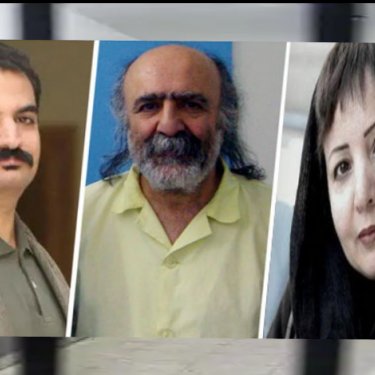Cruel, inhuman and degrading treatment of journalists imprisoned in Iran

Reporters Without Borders (RSF) is extremely concerned about the treatment of journalists imprisoned in Iran, who are being denied their most basic rights, including essential medical treatment, visits from their families and phone calls with them.
Those who try to denounce prison conditions end up paying a price in the form of arbitrary punishments. They include Kayvan Samimi Behbahani, 73, the well-known editor of the monthly Iran Farda and president of the Association for the Defence of Press Freedom. Held since December 2020, he is serving a one-year sentence for “anti-government propaganda.”
In an audio message from Tehran’s Evin prison, he reports that he has been denied visiting rights and phone calls with his family since February as a punishment. “Eleven of my fellow detainees and friends who help me to contact my family are being threatened,” he said. The authorities are also refusing to reduce his sentence under a legal provision for elderly detainees who can no longer support prison conditions.
Alieh Motalebzadeh, a photo-journalist who is vice-president of the Association for the Defence of Press Freedom and has been serving a three-year prison sentence since October 2020 for “meeting and conspiring against national security,” is also a victim of these punitive methods. She has been forbidden visits since 7 September and can no longer call her family.
“She has been given a two-month punishment by the Evin prison administration for joining other detainees in denouncing Coronavirus-related health problems in the prison,” a prison official told her husband.
Other methods used by the Iranian authorities to pressure imprisoned journalists include denying them medical care. Khosro Sadeghi Borjeni, a freelancer and member of the Tehran Association of Freelance Journalists, has been denied proper attention for the past two months although he has collapsed several times. The prison authorities refuse to let him be examined in an outside hospital, while the prison infirmary just gives him corticosteroids that are harmful to his health, his family says.
“We are very concerned about the situation of journalists imprisoned in Iran,” said Reza Moini, the head of RSF’s Iran/Afghanistan desk. “Under the International Covenant on Civil and Political Rights, to which Iran is party, endangering the lives of detainees, denying them medical care or visiting rights, and isolating them constitute violations of the prohibition of torture and of cruel, inhuman or degrading treatment.”
Iran is ranked 174th out of 180 countries in RSF's 2021 World Press Freedom Index.



